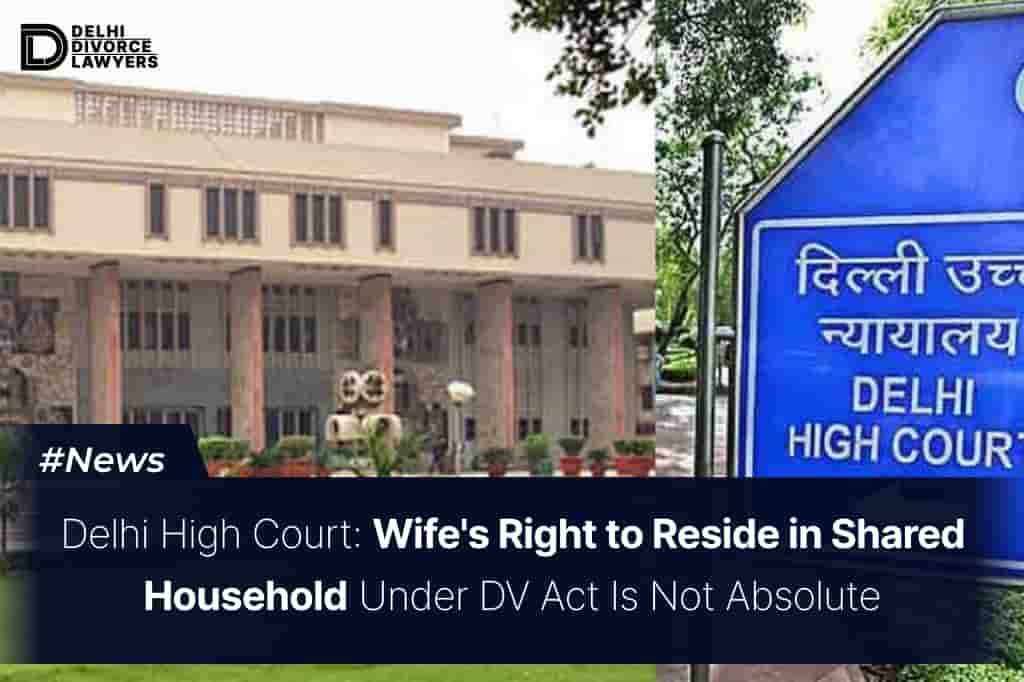The Delhi High Court ruled on Monday that a wife’s right to live in the shared household under the Protection of Women from Domestic Violence Act, 2005 (DV Act), is not absolute, particularly if she is financially independent.
Justice Neena Bansal Krishna, presiding as a single bench, made this statement while dismissing an appeal from a woman who sought to remain in her marital home despite having a job. The case involved a wife who filed a domestic violence complaint after experiencing marital issues within a year of marriage. Initially, she moved into her husband’s family home but ended up living there alone after her husband and in-laws left due to deteriorating relations. In response, her husband and his family filed a civil suit to evict her from the property.
The wife sought protection under Section 19 of the DV Act, which grants women the right to reside in a shared household, irrespective of ownership, provided they have lived there after marriage. However, when it was disclosed that she was employed at Accenture Solutions Private Limited and held an MBA degree, the lower courts determined that she was not in a vulnerable position that would warrant her continued residence in the shared household.
Initially, the magistrate issued an order prohibiting the husband and in-laws from evicting the wife and awarded her interim maintenance of ₹5,000 per month. However, after discovering that the wife had secured a job, the magistrate reversed the eviction order, concluding that her financial independence disqualified her from claiming an absolute right to reside in the household.
The wife contested this decision in a Sessions Court, asserting that her right to reside in the shared household under the DV Act could not be rescinded. However, the Sessions Court affirmed the magistrate’s ruling, leading her to escalate the case to the Delhi High Court. In its order dated October 21, the High Court rejected the wife’s appeal, stating that her employment status undermined her claim to an absolute right to reside in the shared household.
The Court observed that while Section 19 of the DV Act acknowledges a daughter-in-law’s right to live in the shared household, this right is not unconditional and is subject to legal stipulations, including eviction through proper legal procedures and the provision of alternative accommodation or rental assistance.
“No absolute right of residence can be claimed by the petitioner. She herself is an educated woman who has done her MBA and is employed. It is not a case where she is helpless or where any attempt is being made to leave her without shelter,” the Court observed.
The Court stressed that the petitioner’s elderly father-in-law, the homeowner, should not be deprived of his residence at his advanced age. The magistrate had instructed that the wife be provided with a rental flat in the same colony, ensuring she would not be left without a home.
The Court found no errors in the decisions made by the lower courts and dismissed the wife’s appeal, emphasizing that her right to reside under the DV Act must be weighed against other factors, including the rights of the property owner and her own financial independence.
“There is no infirmity in the Order of the learned M.M which has been rightly upheld by the learned District & Sessions Judge. The present petition has no merit which is hereby dismissed along with application, if any,” the Court ordered.

